LOS ANGELES & BOSTON – The OpenNotes movement is rapidly spreading across the country, with nearly 20 million patients now invited to read online the notes their doctors …
OpenNotes
Shift happens, if you let it
by Casey Quinlan, the “Mighty Mouth” of Mighty Casey Media LLC RICHMOND, VA – Culture change requires … culture change. Shifting one person’s thinking about an issue is a heavy lift. Doing that with a group, particularly a highly educated group used to being the smartest people in the room? That can be a monumental…
Making Patients Partners in Real-Time Electronic Charting
by Stephanie D. Drobny, MS-HSL, RN, CPHQ – This form of team charting builds trust with patients and improves health literacy.
Why I hesitate to seek out regular and preventative care
by Mere Abrams, MSW, ASW SAN FRANCISCO, CA – Each time I go to the doctor, I pause before opening the door to the waiting room and take five deep breaths. I have no idea how I will be addressed, read, or referred to, even if it’s not my first appointment. As a trans nonbinary…
Pushing for Partnership in Digital Health
by Michael L. Millenson – CHICAGO, IL – Could OpenNotes help push predictive analytics from paternalism to partnership?
Sharing Clinical Notes With Patients Improves Treatment Effectiveness
by John Torous, MD – BOSTON, MA – Digital psychiatry – using new mobile and connected technologies towards mental health and wellness – offers tremendous potential.
What patients value about reading visit notes: a qualitative inquiry of patient experiences with their health information
Background: Patients are increasingly asking for their health data. Yet, little is known about what motivates patients to engage with the electronic health record (EHR). Furthermore, quality-focused mechanisms for patients to comment about their records are lacking.
Objective: We aimed to learn more about patient experiences with reading and providing feedback on their visit notes.
Methods: We developed a patient feedback tool linked to OpenNotes as part of a pilot quality improvement initiative focused on patient engagement. Patients who had appointments with members of 2 primary care teams piloting the program between August 2014-2015 were eligible to participate. We asked patients what they liked about reading notes and about using a feedback tool and analyzed all patient reports submitted during the pilot period. Two researchers coded the qualitative responses (κ=.74).
Student-accessible healthcare records: A mixed-method study of college student and provider
This mixed methods study evaluated student and provider attitudes and expectations about offering students online access to their student health services visit notes (open notes). Six (N=6) health care providers from four public universities in northeastern Massachusetts participated. Qualitative interviews were completed by students (N=14) from one University in fall of 2013 and an online survey was completed at two universities in Spring of 2014. Attitudes and expectations were explored using qualitative data and descriptive statistics were used to analyze survey questions. Students’ interviews revealed that they desire control over their health and open notes would give them insight and involvement in their health care. Survey data supported these themes. In contrast, providers worried about how it could impact provider-patient relationships. Open notes has the potential to promote students’ understanding and responsibility for their healthcare, which could assist students in their transition from pediatric to adult health care.
Your Patient Is Now Reading Your Note: Opportunities, Problems, and Prospects
Patients have unprecedented online access to their medical records. More than 6 million Americans can now read their doctors’ notes via patient portals, and continued rapid growth is likely. Sharing notes with patients may yield important health benefits, including increased patient empowerment and improved medication adherence. Seeing written information, including notes, helps patients remember the plan of care, reinforces patients’ positive behaviors, and strengthens the patient–doctor alliance.
Health Records All Access Pass
Many healthcare organizations are striving to improve patient engagement by facilitating patient access to clinical notes in the electronic health record (EHR) via patient portals. The University of Washington Health System (UW Medicine) in Seattle, WA, was an early participant in research on patient portals as one of the three OpenNotes study sites.
Since the time of this study, the OpenNotes initiative has now grown into a national movement to improve patient engagement by granting patients the ability to view clinical notes in the EHR. Based on UW Medicine’s positive experience during the pilot study, the organization opened patient access to all clinical notes via an electronic portal throughout its entire health system.
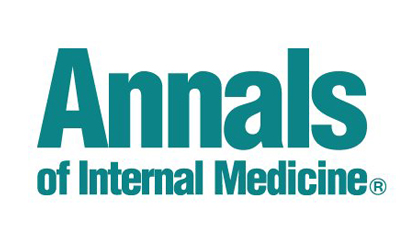
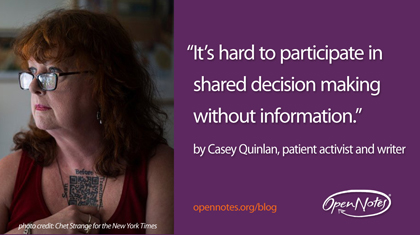
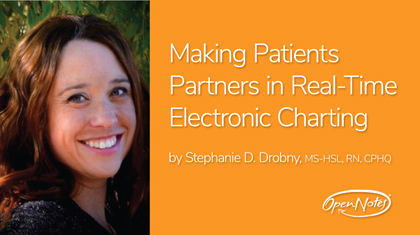
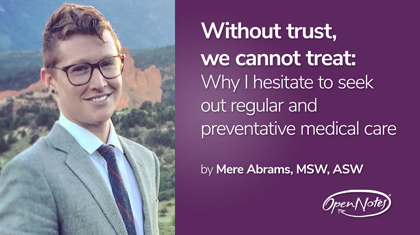
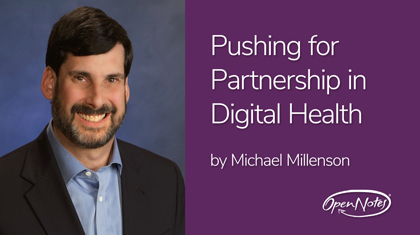
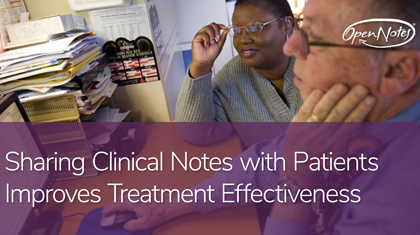




You must be logged in to post a comment.